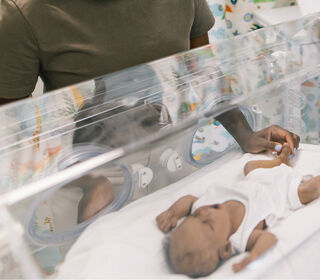
Blog Article

In the United Kingdom (UK) around 1 in 7 babies get admitted into neonatal care (Neonatal Data Analysis Unit (NDAU), 2021). Illustratively, in 2021 approximately 92,800 babies were admitted across England, Scotland, Wales and the Isle of Man (NDAU, 2021). In the UK, neonatal care encompasses three levels specialist care; level 1 refers to a special care baby unit for low dependency admissions, level 2 refers to local neonatal units, for babies who need a higher level of support, and level 3 that refers to neonatal intensive care units (NICUs), for babies with the highest need of support.
Being a sibling of a NICU baby can lead to negative behavioural and emotional outcomes, but siblings’ needs are often not prioritised during NICU baby care by either parents or NICU staff (Savanh et al, 2020). Due to the lack of support and the high-stress situations siblings are experiencing, adverse outcomes can include emotions like guilt, anger and fear, and disrupted sleep and school behaviour (Cahmi, 2005; Beavis, 2007). A recent systematic review found that NICU sibling support is still lacking and under researched, as such there is a remaining need to better understand sibling experiences and avenues for support (Savanh et al, 2020).
Subsequent reviews and studies illustrate an uptake in interventions for NICU siblings, with high acceptability reported by parents and NICU staff for e-health interventions, interventions that focus on education, and storytelling. (Dol et al, 2017, Savanh et al, 2020) Siblings can experience adverse outcomes, including emotions like guilt/anger/fear, and altered sleep/school behaviour (Beavis, 2007). Although still developing, various studies suggest that VR/AR interventions can be more effective at reducing negative outcomes, like pain or distress, through distraction than simpler distraction designs (Lim, et al, 2019, Hadjiat and Marchand, 2022).
Project Aims
The aim of this research was to explore the need and acceptability of sibling support in neonatal environments and to develop the outline content of a digital technological intervention to prepare siblings for neonatal unit visitation, including the views and opinions of neonatal unit staff and parents of siblings.
Clear support was identified for the presence of sibling support during neonatal journeys, with both parents and professionals feeling that this was an area that was beginning to gain momentum but was still in need of development and innovation. Furthermore, the suitability and potential of digital interventions alongside in-person approaches was highlighted. This project explored a range of approaches that could be used to support siblings and their families during this time.
Project Team
Lorna Hibberd - Health Sciences | Birmingham City University
Funding
This project was funded through a Birmingham City University STEAM Fellowship Grant.